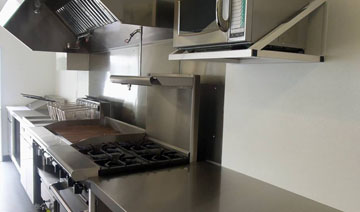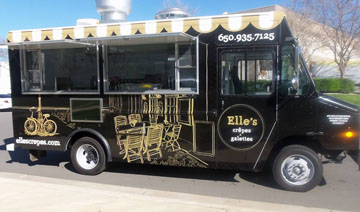Food trucks are becoming increasingly popular. Whether you’re selling food on the streets or at a special event, you must be aware of the legal requirements of establishing a food truck. In this article, we’ll cover the basics of food truck regulations and permits. Let’s jump right in!
Ensure that you have obtained all necessary licenses and permits before starting operations. Food truck operators must follow a strict set of health and safety guidelines to provide high-quality food consistently. So, what licenses and permits do you need to operate a food truck? Here they are.
Each business must obtain a license from the city government before operating within the city. The business license fee is $50 for the first year and $10 for each renewal period.
A license guarantees that the business has proper facilities and equipment for operation. The business owner is responsible for making all necessary arrangements with the city government for obtaining the required permits or licenses before beginning any business activity within the city.
Employer Identification Number is mandatory for all food service businesses that serve customers at least twice a month. The EIN is a unique identification number for the food truck business.
It identifies the food truck business on legal documents, such as utility bills and reimbursement documents issued by the government. Food trucks serve customers at only one location per week, so they should have a physical office space that matches their kitchen’s layout.
It’s mandatory for any person taking part in activities that involve the use of public transportation to carry valid travel documents, such as a driving license. That includes drivers of food trucks.
There are two types of food handler’s permits: an end table permit and a portable unit permit.
The former is for vendors who intend to set up a permanent structure in a public place used for civilian purposes. The latter is for those who wish to place their food trucks within private property.
All food truck locations must obtain a local health department permit before operating. The local health department assesses the site’s sanitation and wastewater treatment facilities compared to neighboring localities. It ensures that food trucks don’t bring diseases into the local community.
The food truck industry is growing fast. Businesses are establishing themselves in residential areas and commercial districts everywhere. Food trucks serve as an alternative to brick-and-mortar businesses that provide catering and food services monthly.



We ensure that every concession trailer, catering trailer, or hot truck we sell is Federally compliant from day one. California Cart Builders' knowledgeable "Approval Assistance" team can work as a liaison between you and your health department to make sure your unit will pass your local Health codes.
We are the Leading manufacturer for a Mobile Kitchen and High quality concession trailer. If you are looking for hot truck, or commercial catering trailer, and concession trailer you have come to the right place.
Mobile kitchen or Hot Truck are best to Franchise your restaurant.